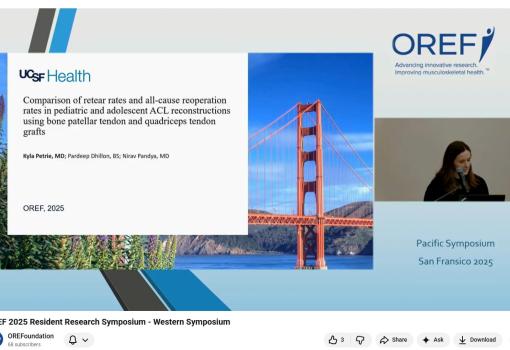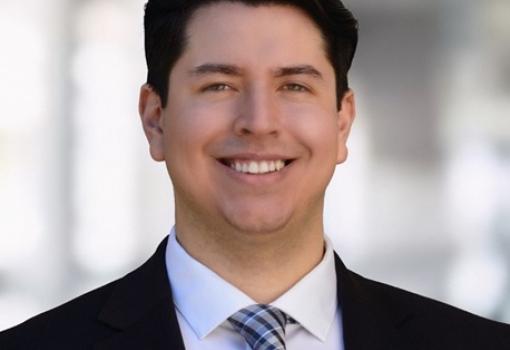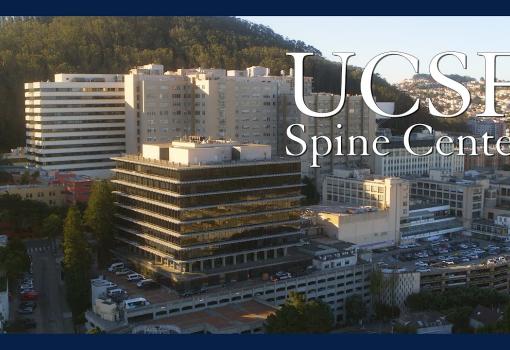Kelsey H. Collins, PhD

Kelsey H. Collins, PhD
Publications
Web Links
Media Links
Awards and Honors
Grants
- The Role of Fat in Osteoarthritis
2023-08-01 - 2026-06-30
NIH R00AR078949
Role: Principal Investigator
- The Role of Fat in Osteoarthritis
2022-04-24 - 2024-03-31
NIH K99AR078949
Role: Principal Investigator
- The Role of Neuroimmune Metabolic Crosstalk in the Onset and Progression of Pain in Osteoarthritis
2023-06-01 -
Arthritis National Research Foundation
Role:
Education
| Degree | Organization | Year | |
|---|---|---|---|
| B.S. | University of California, Davis , Davis | 2011 | |
| Ph.D. | University of Calgary | 2017 | |
| Postdoctoral Fellowship | Washington University in St. Louis | 2021 | |
| Research Instructor | Washington University in St. Louis | 2023 | |
| Research Instructor | Washington University in St. Louis | 03/2023 | |
| Postdoctoral Fellowship | Washington University in St. Louis | 12/2021 | |
| Ph.D. | University of Calgary | 08/2017 | |
| B.S. | University of California, Davis | 06/2011 |
About Kelsey H. Collins, PhD
Kelsey H. Collins, PhD, is an Assistant Professor and Principal Investigator at the UCSF Laboratory for Musculoskeletal Crosstalk, where she leads basic and translational research focused on the molecular mechanisms driving tissue interactions in osteoarthritis and related conditions.
Dr. Collins completed her undergraduate studies in Exercise Biology at the University of California, Davis, and earned her PhD in Biomedical Engineering at the University of Calgary under the direction of Dr. Walter Herzog. During her postdoctoral studies in the Guilak Laboratory at Washington University in St. Louis, she developed a tissue engineering and regenerative medicine platform to investigate the signaling mechanisms between adipose and musculoskeletal tissues. For this work, she received the New Investigator Recognition Award from the Orthopaedic Research Society in 2020 and was named among the inaugural class of Rising Stars in Engineering in Health by Columbia University in 2020. Her transition to independence is supported by an NIH NIAMS K99/R00 Award, in which she aims to determine the role of adipokines in osteoarthritis (OA) susceptibility and pain, and to generate a new class of OA therapies.
In the UCSF Laboratory for Musculoskeletal Crosstalk, Dr. Collins and her lab leverage interdisciplinary approaches in bioengineering, endocrinology, and physiology to investigate the molecular mechanisms of tissue crosstalk in osteoarthritis. Their work aims to delineate fat-cartilage signals that contribute to osteoarthritis susceptibility and pain, with the goal of generating a new class of regenerative medicine-based therapies. They use in vitro and in vivo approaches, induced pluripotent stem cells, CRISPR-Cas9 genome engineering, mouse models, human tissues, and state-of-the-art multi-omic spatial approaches. Since pathological fat signaling may play a role in many disease processes, they work to define these mechanisms and create therapies with implications for aging, obesity, diabetes, and other chronic diseases.
The UCSF Laboratory for Musculoskeletal Crosstalk values diversity in backgrounds and experience. They believe diversity drives creativity and innovation, and they are dedicated to fostering an inclusive ecosystem where everyone feels valued and respected. Their mission is to improve patient outcomes through exciting, collaborative, and innovative approaches in musculoskeletal research.


